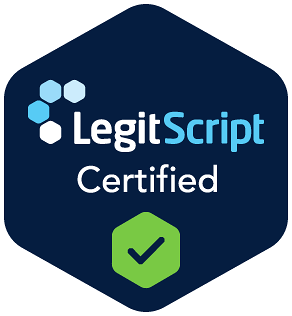
Outpatient alcohol treatment is becoming a lifeline for many people in Concord who are ready to take back control of their lives without having to step away from everything they care about.
Unlike inpatient rehab, where you stay at a facility full-time, outpatient treatment lets you get the support and care you need while still living at home, going to work, and being there for your family.
The Reality of Alcohol Use in Massachusetts
Before we get into how outpatient treatment actually works, it’s important to understand what we’re up against.
In Massachusetts, alcohol use is more common than many people realise. According to the state’s Department of Public Health, more than 1 in 5 adults say they binge drink at least once a month. And sadly, alcohol-related hospital visits have been climbing year after year.
In Concord and the surrounding Middlesex County area, the Massachusetts Department of Public Health has raised concerns about rising alcohol misuse, particularly post-COVID, when isolation and stress took a serious toll on mental health. And while alcohol is legal, accessible, and socially accepted, for many, it’s anything but harmless.
Getting Started: A Plan That’s Built Around You
The first step in outpatient alcohol treatment usually starts with a conversation—not a test, not a lecture, just a real talk. You’ll sit down with a licensed professional who genuinely wants to understand what’s going on in your life. They’ll ask about your drinking habits, your physical and mental health, your day-to-day routine, and how you’re feeling about making a change.
From there, you’ll work together to build a treatment plan that actually makes sense for you. Not a generic checklist, not a one-size-fits-all approach, but something that fits your life, your challenges, and your goals.
Because let’s be honest: what a 45-year-old high school teacher in Concord needs might look completely different from what a 21-year-old college student needs, or a retired veteran, or a busy parent. Your story is unique, and your treatment should be too.
From there, they’ll help craft a treatment plan customised to you, not just some standard checklist. After all, what works for a 45-year-old teacher living in Concord won’t necessarily work for a college student just getting started in life or someone who’s already retired. This is your journey, and it should fit your life.
Therapy and Counseling: The Heart of Healing
Most outpatient programmes include a mix of individual therapy and group counselling—and both can play a big role in your healing.
In one-on-one therapy, you get something many people haven’t had in a long time: a safe space that’s just for you. To say what’s actually hard. To explore how things got to this point and what change might look like, not based on what anyone else thinks you “should” do, but on what feels right for you.
And the best part? You don’t have to have all the answers. You don’t have to come in knowing exactly what healing looks like. This is a process, and you’re allowed to take it one step at a time. You go at your own pace. Therapists may use a few different methods, depending on what works best for you.
Learning and Growing: Education and Life Skills
Recovery isn’t just about quitting alcohol—it’s about figuring out how to live a life that feels more balanced, more connected, and more you without needing it. That’s why a lot of outpatient programmes go beyond therapy and include education and life skills as part of the process.
You’ll start to understand what alcohol really does to your brain and body—not in a dry, clinical way, but in a way that helps things click. Like why cravings come out of nowhere, or why certain feelings hit so hard. When you can actually make sense of what’s going on inside, it gets a little easier to respond with care instead of just reacting on autopilot. Along the way, you’ll pick up tools that make everyday life feel more manageable.
Support Groups: You’re Not Alone
One of the most comforting parts of recovery is realising you’re not in this alone. So many others have walked a similar path—and are still walking it, just like you. That’s why most outpatient programmes include group support, with options like SMART Recovery or Alcoholics Anonymous (AA).
Whether you’re someone who feels more at ease sitting in a circle with others or you’d rather join from home in your sweats with a cup of coffee, there’s something here in Concord that can fit your comfort zone.
And over time, these groups often become more than just part of the routine—they can become a steady source of strength, encouragement, and even genuine connection. At Forrest Behavioural Health, we believe that real healing happens through connection—not by going it alone. It happens when you’re surrounded by people who truly get it. When you start reconnecting with yourself. And when you have support that shows up for you, just as you are.
Medication-Assisted Treatment (MAT): An Extra Layer of Support
One medication that’s often used is Naltrexone (you might hear it called by its brand name, Vivitrol). It works by blocking the part of the brain that makes alcohol feel rewarding. So even if you drink, it just doesn’t give you the same effect—which can really help when you’re trying to break old patterns.
Others, like Acamprosate (Campral), help your brain find its balance again after long-term alcohol use. And Disulfiram (Antabuse) can make drinking feel physically unpleasant, which can be a strong deterrent. These medications aren’t magic fixes—and they’re never used on their own—but when combined with therapy and counselling, they can give some people just the right boost to stay committed and keep moving forward.
Key Takeaways
Outpatient alcohol treatment in Concord is about getting real support without having to put your life on pause. You don’t have to leave your home, job, or family to start making a change. Everything is built around you—your story, your pace, your needs.
With therapy, group support, life-skills coaching, and even medication options, you’ve got tools and people by your side every step of the way.
Whether you’re just thinking about change or already on your way, help is here. You don’t need to have all the answers—just a willingness to start. We’ll walk with you from there.

